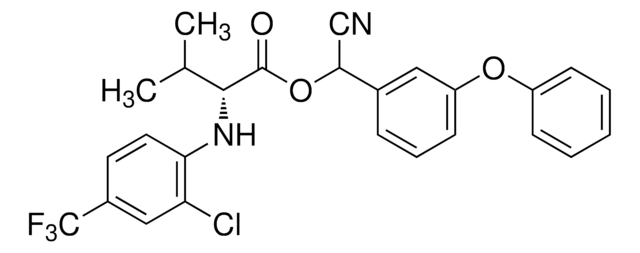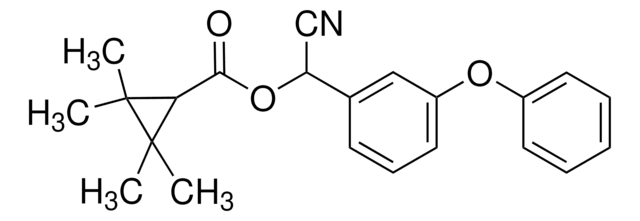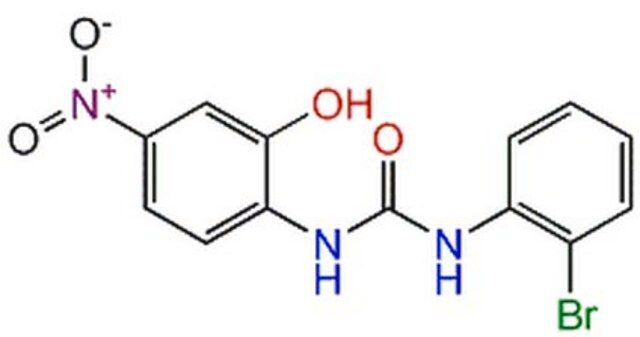F1428
Fenvalerate
≥97%
Synonym(s):
α-Cyano-3-phenoxybenzyl α-(4-chlorophenyl)isovalerate
About This Item
Recommended Products
Quality Level
Assay
≥97%
storage temp.
−20°C
SMILES string
CC(C)C(C(=O)OC(C#N)c1cccc(Oc2ccccc2)c1)c3ccc(Cl)cc3
InChI
1S/C25H22ClNO3/c1-17(2)24(18-11-13-20(26)14-12-18)25(28)30-23(16-27)19-7-6-10-22(15-19)29-21-8-4-3-5-9-21/h3-15,17,23-24H,1-2H3
InChI key
NYPJDWWKZLNGGM-UHFFFAOYSA-N
Looking for similar products? Visit Product Comparison Guide
General description
Application
Biochem/physiol Actions
Preparation Note
Signal Word
Danger
Hazard Statements
Precautionary Statements
Hazard Classifications
Acute Tox. 3 Oral - Aquatic Acute 1 - Aquatic Chronic 1 - Eye Irrit. 2 - Skin Irrit. 2 - STOT SE 3
Target Organs
Respiratory system
Storage Class Code
6.1C - Combustible acute toxic Cat.3 / toxic compounds or compounds which causing chronic effects
WGK
WGK 3
Flash Point(F)
Not applicable
Flash Point(C)
Not applicable
Certificates of Analysis (COA)
Search for Certificates of Analysis (COA) by entering the products Lot/Batch Number. Lot and Batch Numbers can be found on a product’s label following the words ‘Lot’ or ‘Batch’.
Already Own This Product?
Find documentation for the products that you have recently purchased in the Document Library.
Our team of scientists has experience in all areas of research including Life Science, Material Science, Chemical Synthesis, Chromatography, Analytical and many others.
Contact Technical Service









